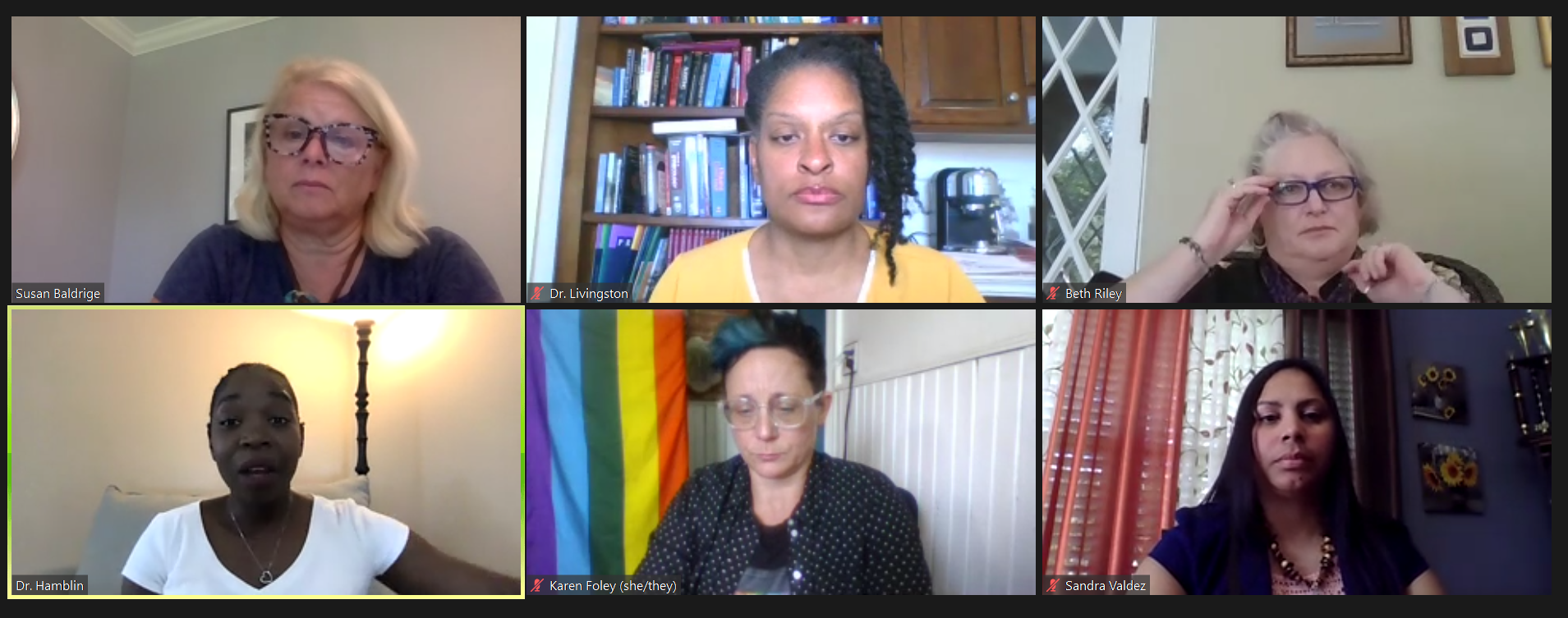
On Thursday, Drs. Sharee Livingston and Cherise Hamblin succinctly expressed the dominant theme of the discussion on health equity in which they were participating.
Livingston: "We have a long way to go." Hamblin: "We can do better than we have done."
The United Way of Lancaster County sponsored the virtual forum, held via Zoom and moderated by Susan Baldrige, executive director of the Partnership for Public Health. Titled "Are You Being Seen? Inequities in Healthcare," it was the third in the organization's "Conversations About OUR Community" series.
The discussion focused on health care issues among racial and ethnic minorities as well as the LGBTQ+ community.
"Our intersections are actually the most vulnerable," said Karen Foley, executive director of the Lancaster LGBTQ+ Coalition.
Staff at an ER, for example, may not automatically accord a black transgender woman the same dignity they would accord others, she said.
Foley is working to launch a local LGBTQ+ health consortium. It will be a forum for practitioners to develop and share best practices in dialogue with patients and advocates, Foley said; among other things, it plans to sponsor a scholarship programs for medical residents to study LGBTQ+ health.
'Are You Being Seen? - Inequities in Healthcare' (highlights)
Implicit respect
Respect is not something a patient should have to fight for; it should be implicit in any doctor-patient interaction, said Hamblin, an obstetrician-gynecologist at Penn Medicine Lancaster General Health and founder of Patients R Waiting.
Social stigma is a major underlying factor in negative health outcomes, said Beth Riley, a health advocate and former communications and diversity executive.
The pandemic, she said, "starkly illustrated that for the economy to be healthy, people need to be healthy."
The business community is starting to realize this, and there are huge opportunities for the private sector and medical providers to work together on public health, she said.
The U.S. underinvests in public health, she said. Instead, it spends massively on direct care — much more than other developed countries do — but its outcomes are consistently poor.
Different dialects
Sandra Valdez, chief operating officer at the Spanish American Civic Association, said just before the call, she had been interpreting for her mother at a medical appointment. Her mother understands English up to a point, but is not a native speaker.
Valdez was not allowed into the procedure room; instead, staff used a tablet translation device. The problem, Valdez said, was the device used a different dialect of Spanish than her mother was familiar with. There was a lot her mother didn't understand, she said, and when it's a matter of health, that's not acceptable.
Hamblin said practitioners can do better, as can Lancaster collectively.
Providers should constantly be learning, she said, seeking open conversations and broadening their views. The community should be working toward establishing a public health department, but even without one, there are collaborations that can be formed and opportunities for improvement.
Diversifying Doulas was created through that kind of teamwork, said Livingston, an obstetrician-gynecologist at UPMC Lititz and co-founders of Diversifying Doulas
Lancaster is small enough that individuals can make a difference, Foley said: The challenge is overcoming complacency, or "institutionalized mediocrity," as she put it.
ALICE update
Thursday's discussion kicked off with a presentation by Rebecca O'Shea of the United Way of Pennsylvania on the United Way's ALICE data, which profiles the economic plight of working class households. "ALICE" stands for "Asset Limited, Income Constrained, Employed," a description that applies to more than a quarter of Pennsylvania residents.
O'Shea included a preview of her organization's second Covid-19 Impact Survey, which found ongoing economic stress among ALICE households, especially around housing, as well as increased mental health concerns at all income levels.
Previous "Conversations About OUR Community" looked at county public health capacity and vaccine equity.
(Editor's Note: Livingston and Riley are United Way of Lancaster County board members. The United Way of Lancaster County sponsors One United Lancaster.)





